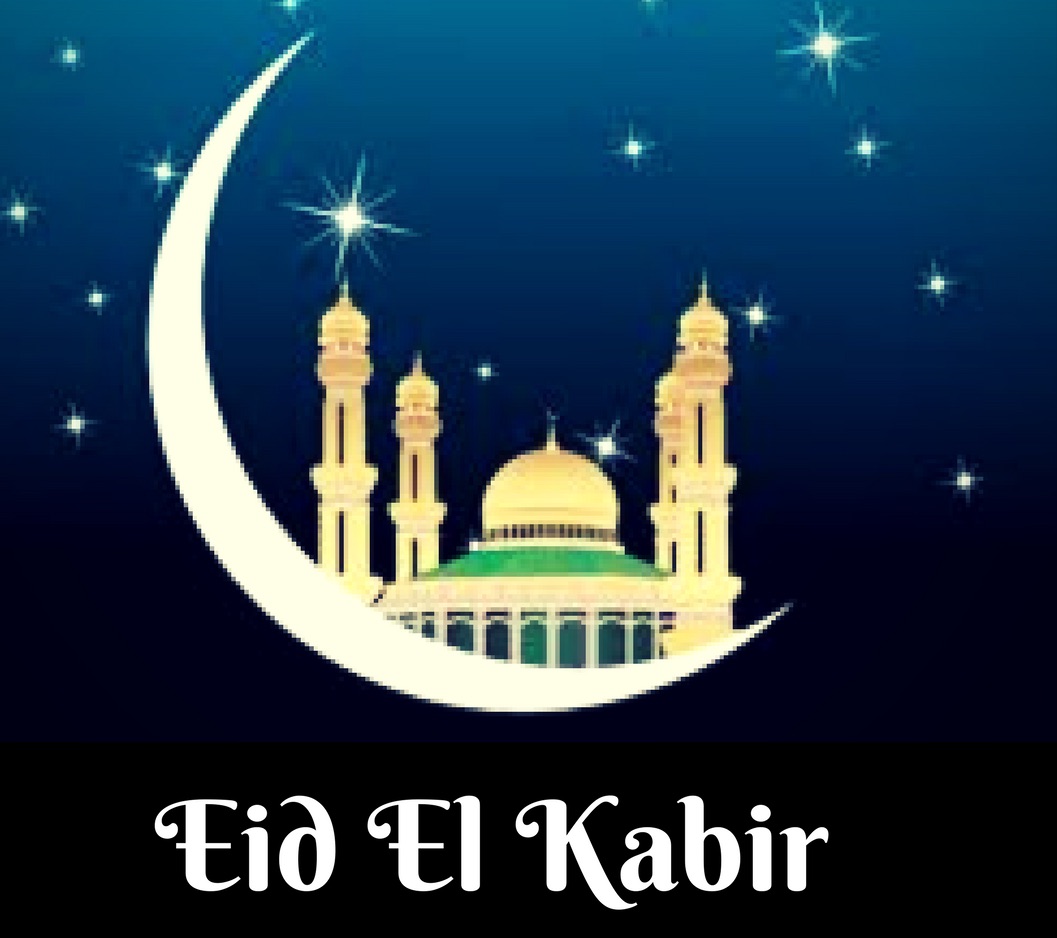The Eid el-Kabir is a great festival. It is great because of the merger between the profane and the sacred. This festival predates Prophet Muhammad (SAW); it is a festival instituted by the Almighty through the agency of Prophet Ibrahim and Ismail (upon them be peace and blessings of Allah).
Here goes the story, the story of faith and the faithful. He started as a believer, a lonely believer in the Almighty at a time when humanity chose to disbelieve in Him. He began by asking his mother who his creator and God was. His mother told him it was his father, Azar. Prophet Ibrahim was not contented. The notion that his father was his God appeared jejune to him. So, he asked his mother once again who was the creator of his father. His mother told him it was Nimrod. the emperor, the king of the time. “If Nimrod is the God of my father, who was his creator?” Nobody could provide a categorical answer. But Prophet Ibrahim knew the answer. He knew that his creator was neither a human being nor a jinn. He knew his creator had no beginning and no end. He knew that his creator was both undated and beyond spatial limitations. He knew that his creator fashioned and created the cosmos out of nothing.
Thus he chose to believe in him. He chose to believe in the Almighty. But to believe in the Almighty is to make a difficult but extremely rewarding choice. To believe in the Almighty at a time when humanity has apostatised is to run the risk of being oppressed or humiliated. Thus he was tormented and punished by the idolatrous community in which he was born. But he knew that adversity is a precondition or prerequisite for posterity, not the other way round. He knew he would win but he had to endure tribulation. Thus he was thrown into a burning fire but the power to burn was taken away from the latter by the Almighty. He, therefore, emerged from the inferno unscathed. By coming out of the fire unhurt, Prophet Ibrahim became an eternal model for all pretenders to faith. He became an exemplar in our ongoing battle against earthly principalities.
Brethren, when someone proposes to oppress, torment and subject you to untold suffering, the Eid el-Kabir takes place every year to remind you of the emptiness of that threat once you stand for and with your creator.
- Eid el-Kabir: NSCDC deploys 878 operatives in Yobe
- Pepper, tomato scarcity hit Ilorin as Eid-el-Kabir approaches
Brethren, let us quickly fast forward to the family established by Prophet Ibrahim, a family of faith, piety and perseverance. He was the patriarch, not a masculinist. Sarah was the wife, the extremely contented and humble mother of Ishaq, from whose womb the Jews emerged. Hajar was the other wife, mother of Ismail, from whose womb Ismail emerged. Prophet Ibrahim’s family featured a man, two women and two sons, all of whom were individually destined to impact human history in extremely dissimilar and similar ways.
In other words, every action of these characters, while they were on earth, was destined to be a signifier. They were all involved in creating history without actually knowing it; they ‘transacted’ in spiritual-mundane businesses which eventually became models till eternity.
For example, dear brethren, Prophet Ibrahim dreamt he offered his son, Prophet Ismail, as a sacrifice to the Almighty. He proceeded to inform him of what he saw and the latter, without hesitation, encouraged his father to carry out the divine inspiration without prevarication. Why was Prophet Ibrahim blessed with such a child who was ready to travel with him in the wilderness of spirituality? Why was he blessed with such a faithful child? My teachers suggested it was pay-back time for him. Yes. Prophet Ibrahim was equally dutiful to his parents; the Almighty therefore would not and could not have blessed him with another son other than a lovely and dutiful one. My brother, where and how is your father today? Pause a moment and ask yourself: where and how is your mama now?
Thus in that lonely desert that day, father and son got together to do what the father deemed to be the bidding of the Almighty. He wanted to sacrifice his son; the son wanted to offer himself to the Almighty. Father desired to please the Almighty; the son wanted to curry the favour of the Owner of the heavens and earth. Meanwhile, the mother of the son, Hajar, occupied a lonely space. In silence, she bore the pain of the then-inevitable loss of her son. In silence, she opened up her heart to the Almighty. Ismail was the only fruit of her womb. She had hoped that he would be alive to take care of her tomb. But there she was all alone as she submitted her desires and aspirations to the Almighty, the Owner of her womb and tomb.
Brethren, Eid el-Kabir is around to remind us, once again, of how the Almighty usually intervenes to turn a situation of hopelessness into that of hope and happiness. Prophet Ibrahim was told: “You have indeed affirmed the dream” and consequently a beautiful ram was given to him as a ransom for his son. Thus sacrifice became not an end in itself but a means towards a nobler end: an end to the sacrifice of humans in history, an end to the ascension of pernicious authorities in humans which usually make them go against the will of the Almighty, an end to greed, self-conceitedness, and inane glorification of the ephemeral not the eternal. The sacrifice of animals on this day reminds the servants of the Almighty of their utter weakness in relation to every entity in the universe. Were it not for the WILL and favour of the Almighty, how could we by ourselves control and exert our authority over these sacrificial lambs?
Remember that the Eid el-Kabir signifies our arrival for a religious duty; it also signals our constant departure to walk with our Creator. Somebody asked me “Who knows tomorrow?” A brother intervened and said, “Nobody does.” But who owns tomorrow?” he queried again. “It is the Almighty.” We all chorused. May He who knows and owns tomorrow dispel our sorrow and lead us out of this tunnel to underperformance and pettiness.

 Join Daily Trust WhatsApp Community For Quick Access To News and Happenings Around You.
Join Daily Trust WhatsApp Community For Quick Access To News and Happenings Around You.
